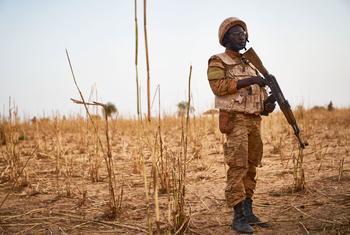Fatal Attacks Near Niger-Burkina Faso Border Expose Critical Security Vulnerabilities
Recent violent assaults near Niger’s border with Burkina Faso have tragically claimed the lives of at least 39 individuals, according to official reports from the Nigerien Ministry of Defense. This incident underscores the ongoing security crisis in the Sahel region, where extremist factions persistently destabilize local communities and challenge governmental authority. As residents endure trauma and insecurity, regional governments face mounting demands to enhance counterterrorism strategies and restore order.
Casualty Overview and Immediate Governmental Measures
The coordinated attacks targeting villages along Niger’s southwestern boundary have inflicted severe human losses and widespread devastation. The Ministry of Defense confirmed that militant groups exploited weak border controls to carry out surprise raids, resulting in 39 fatalities. Witnesses describe scenes filled with panic as armed insurgents overwhelmed defenseless populations.
In response, Niger is fast-tracking a multi-pronged security enhancement plan that includes:
- Deploying additional military personnel to vulnerable zones adjacent to Burkina Faso
- Strengthening intelligence-sharing mechanisms with neighboring countries for early threat identification
- Implementing community engagement programs aimed at preventing radicalization through local empowerment
- Upgrading logistical capabilities for rapid reaction units tasked with crisis intervention
This integrated approach aims not only at immediate threat mitigation but also at fostering long-term stability by reinforcing both state security forces and civilian resilience.
The Wider Impact of Cross-Border Militancy on Sahel Stability
The escalation of cross-border violence between Niger and Burkina Faso intensifies an already precarious security landscape across the Sahel—a region experiencing a surge in extremist activities over recent years. The porous nature of these borders facilitates militant mobility, undermining national sovereignty while complicating multinational counterterrorism efforts.
A comprehensive analysis reveals several critical consequences:
- Tensions Among Neighboring States: Rising insecurity breeds distrust among countries, impeding collaborative initiatives essential for regional peace.
- Civilian Displacement Crisis: Conflict-driven migration strains resources in host communities as refugees seek safety away from violence-affected areas.
- Diminished Economic Progress: Governments divert funds toward defense spending at the expense of infrastructure development vital for sustainable growth.
| Affected Sector | Description of Impact |
|---|---|
| Security Landscape | An expanded military presence risks infringing on civil rights amid heightened tensions between authorities and civilians. |
| Economic Stability | Terror-related unrest deters foreign investment flows and disrupts tourism industries crucial for local economies. |
| Social Cohesion | Persistent violence fosters mistrust among ethnic groups, weakening social fabric necessary for reconciliation efforts. |
Pursuing Regional Solidarity: Collaborative Approaches Against Extremism
The recent deadly incidents highlight an urgent truth: combating transnational terrorism requires unified action beyond individual national capacities. Strengthening partnerships among West African nations is vital to effectively dismantle insurgent networks operating across borders. Key components include:
- An Integrated Intelligence Framework: Establishing shared platforms enabling real-time exchange of critical information among regional security agencies; li >
- Joint Military Operations : Conducting regular combined exercises designed to improve coordination between armed forces from different states; li >
- Community-Led Peacebuilding Programs : b > Initiatives educating youth on peaceful conflict resolution while addressing socioeconomic factors fueling extremism; li >
International stakeholders also contribute significantly by offering financial aid, technical assistance, and specialized training tailored toward enhancing local operational capabilities.< / p >

